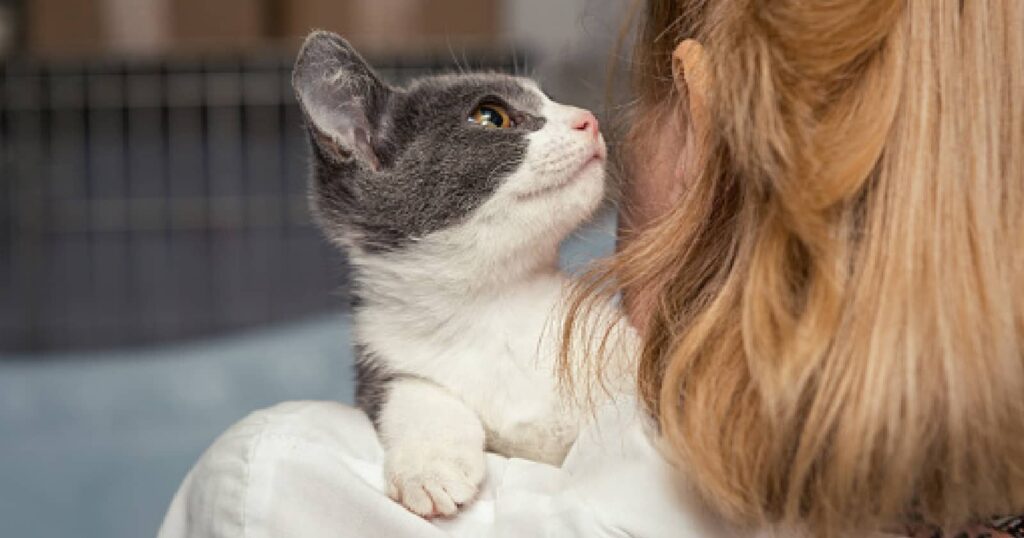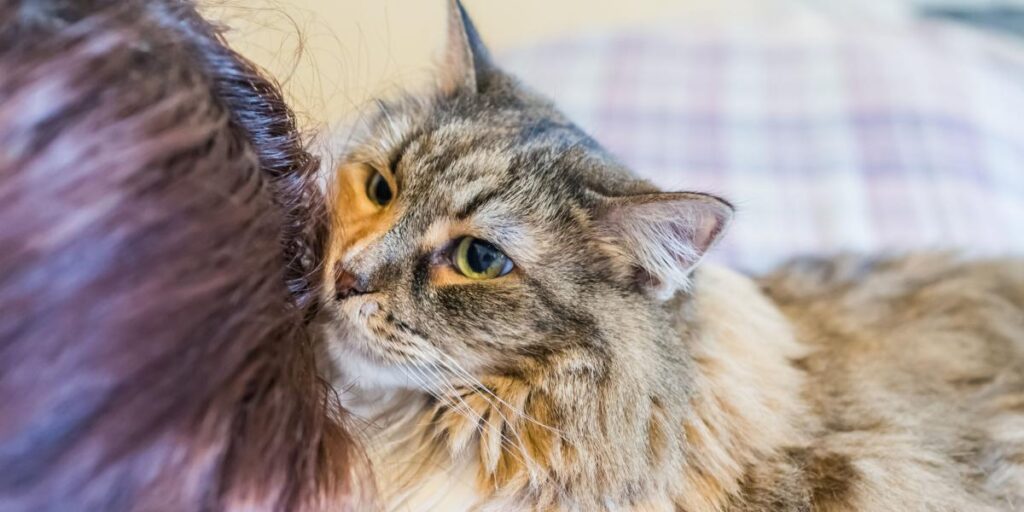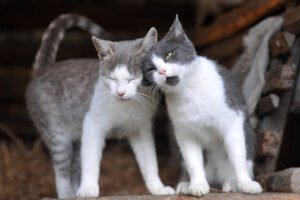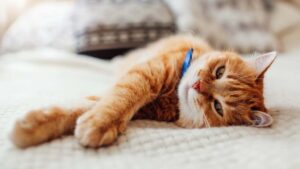Why does my Cat Bite and Pull my Hair?

Do you ever find yourself wincing in pain as your cat bites and pulls your hair? It’s not an uncommon behavior, and it can leave many cat owners feeling frustrated and confused. But why do cats do this? In this article, we’ll explore the reasons why a cat might bite and pull hair and what you can do to prevent it.
Whether it’s playfulness or something serious, understanding why your cat is behaving this way is the first step in finding a solution.
Why Does Your Cat Bite and Pull Your Hair?
Here are some common reasons why your Cat(s) might be motivated to bite/pull your hair.
Playful Behavior:
Cats are curious creatures, and love to explore their surroundings by playing with objects they find interesting. Your hair might look like a fun toy to them, especially if it’s moving or hanging. However, it’s essential to understand that playful biting and pulling should be discouraged as it can lead to unintentional scratches and injuries.
Attention-Seeking Behavior:
Cats love attention and can do anything to get it. Biting and pulling your hair can be their way of demanding your attention. They may also meow or paw at you for the same reason. If you notice this behavior, try to give your cat enough attention during the day. That way they won’t feel the need to bite or pull your hair.
Love Biting:
Cats can show their affection in many ways, and love biting is one of them. They may give you a little nip on the arm or leg to express their love. Similarly, they might gently bite or pull your hair as a way of showing their love and affection towards you. While this behavior is generally harmless, it’s best to discourage it to prevent any accidental injuries.
The smell of your Hair:
The smell of your hair can also be a reason why your cat might bite and pull it. Cats have a strong sense of smell, and they may be attracted to the scent of your hair due to natural oils or scented shampoo. If you notice that your cat is particularly drawn to the smell of your hair, you can try using a different hair productor washing your hair more frequently (to reduce oil buildup) to see if this reduces the behavior.
Stress and Anxiety:
Cats can experience stress and anxiety, which can manifest in various ways. One of them is biting and pulling their hair. They may resort to this behavior as a coping mechanism to relieve their stress or anxiety. If you notice your cat’s behavior change suddenly, and they’re biting and pulling your hair more frequently than usual, it could be a sign of underlying stress or anxiety.
Health Issues:
In some cases, excessive biting and pulling of hair can be a sign of an underlying health issue. If your cat is displaying this behavior, you should take them to a veterinarian to rule out any health problems. Dental problems, skin irritation, or allergies, can cause cats to bite and pull hair. This applies to both its own hair, and your hair.
Pica is another issue that cats can suffer from (including humans). It is a medical condition where cats crave non-food items like hair, wool, or plastic, and can cause blockages in their digestive system, leading to severe health issues.

Can Cats Get Sick from Eating Hair?
It’s not uncommon for cats to eat hair, whether it’s their own or their owner’s. However, ingesting a large amount of hair can lead to health problems such as hairballs. Hairballs occur when hair accumulates in the cat’s digestive tract and forms a ball that the cat cannot pass through the digestive system.
If your cat is exhibiting this behavior, it’s important to monitor their health. Common symptoms include vomiting, constipation, and a lack of appetite. If hairballs in your cat are occurring frequently, and/or causing health issues, it’s time to consult with a professional who may prescribe some medication.
How to Stop Your Cat from Biting and Pulling Your Hair
Now that you understand why your cat may be biting and pulling your hair, let’s explore some ways to put a stop to this behavior:
- Redirect their attention – Offer your cat an alternative toy to play with, such as a stuffed animal or a feather wand. This will help redirect their attention from your hair.
- Positive reinforcement – Reward your cat when they exhibit good behavior, such as playing with their toys instead of biting your hair. This will help reinforce positive behavior. Likewise, when they do something you don’t want to, an expression of anger or being upset will help your cat understand not to do it again.
- Reduce stress – If your cat is exhibiting this behavior due to stress and anxiety, try to reduce their stress levels. You can do this by providing a calm and quiet environment. Other simulants like Catnip can also induce a relaxing effect within your cat.
- Preventive Measures – You can take preventive measures and avoid giving your cat the opportunity to play with your hair. If you keep this up for a while, they might lose the habit. For example, try tying up your hair instead of leaving it loose. If your cat exhibits this behavior when you sleep, try wearing a sleeping cap which covers your hair.
- Keep your Cat busy: If you suspect your cat is biting/pulling your hair in a bid for attention, then you have two choices. Either spend more time with it, or if this is not possible, find some other means of doing so. Getting another cat as play-mate would be ideal. Alternatives include getting interactive puzzles and similar items so your cat can entertain itself without you.
- Consult with a veterinarian – If you suspect that your cat’s behavior is due to a health issue, it’s important to consult with a veterinarian. This can help your cat get a proper diagnosis and treatment.
Conclusion
In conclusion, cats biting and pulling their owner’s hair can be a frustrating and even painful experience. Understanding the reasons why your cat is exhibiting this behavior and taking the necessary steps to stop it can help improve your relationship with your furry friend.
Remember to always seek advice from a veterinarian if you suspect that your cat’s behavior is due to a health issue.


